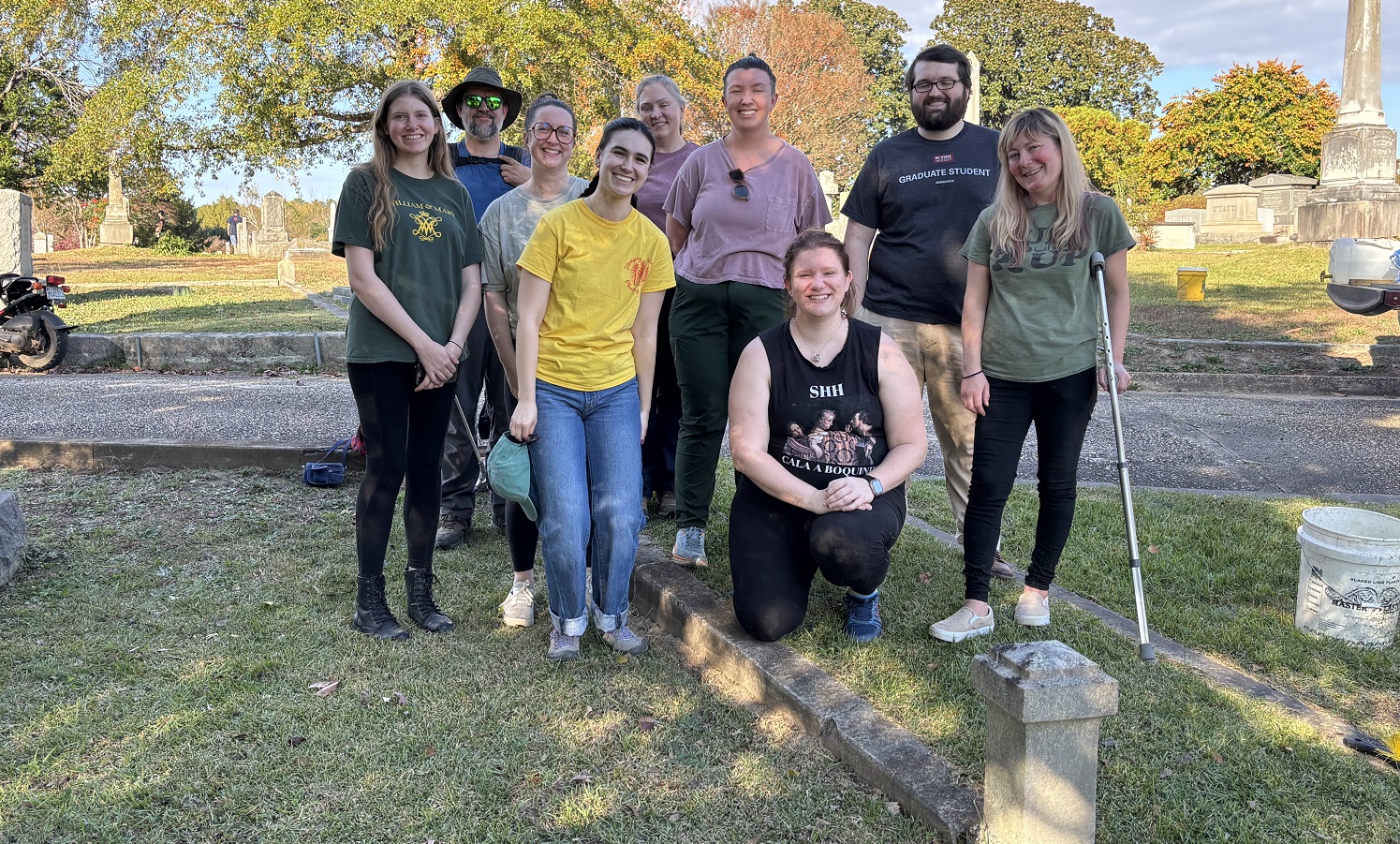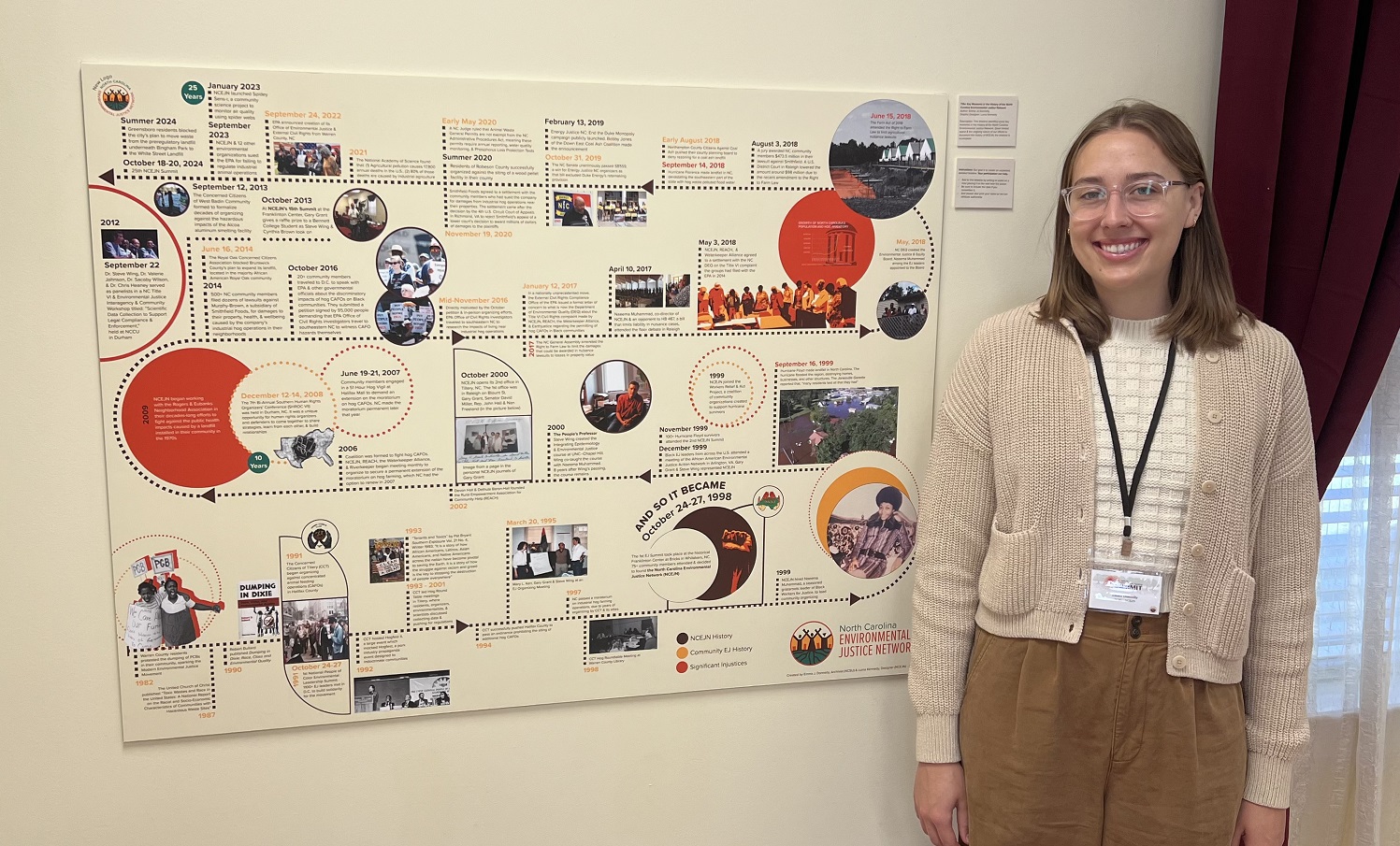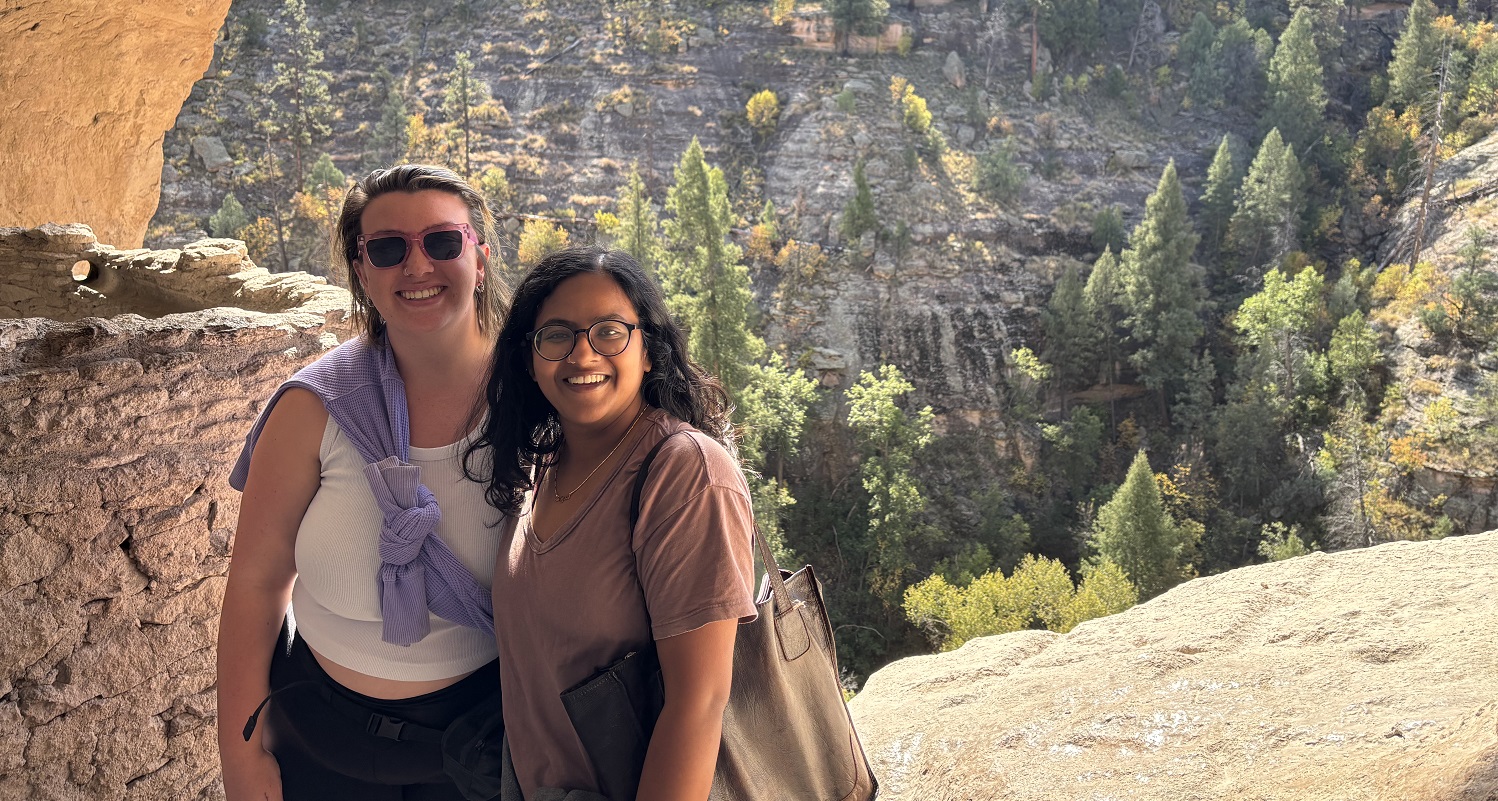Taking Public History International with Study Abroad in Prague
This past summer, Professors Alicia McGill and Verena Kasper-Marienberg designed the curriculum for an interdisciplinary and international history program and traveled with eleven undergraduate and nine graduate students to Prague, Czech Republic. The two-week long program was administered through the NC State Study Abroad Office, but also involved a partnership with NC State’s European Center located adjacent to the historic Old Town Square in Prague.

“Public History in Prague” in Summer 2023 was built off a previous program in Prague which took place pre-Covid and was designed by former Director of Public History, Tammy Gordon. Although McGill and Kasper-Marienberg had initially budgeted for twelve students, due to strategic marketing, the opportunity for students to earn 6-credits and available travel funds for graduate students, the number of participants grew to 20. “And,” says Dr. McGill, “people were just really hungry for study abroad after Covid derailed previous planned study abroad trips. Plus, there’s such a rich history in Prague. The Czech Republic is such a fantastic place for early modern history, and the Habsburg Empire, but then also Nazi occupation and Soviet occupation and a country rebuilding its identity through all of that – the museums and monuments – which was the focus of one of the courses that Dr. Kasper-Marienberg taught.” In addition to a week and a half in Prague, the 2023 program also involved two short trips to Bratislava, Slovakia and Vienna, Austria.
In the program, students received instruction in European history and public history methodology and analysis through field trips, reading/writing assignments, online forum posts, and lectures with NC State instructors and guest speakers. Undergraduate students took a survey course on early modern European history and graduate students took an independent study course which focused on cultural heritage studies and their unique research interests. Both undergrads and grad students took a course focused on history and public memory in central Europe. Students explored theories and practices in public history and related fields, including historic preservation, museums, tourism, cultural heritage, and memory studies, in the local, national, and transnational contexts of Prague and central Europe. They gained first-hand experience connecting with practicing historians, public history and cultural heritage professionals, as they attended lectures and visited over fifteen museums, and cultural and historic sites throughout Prague and surrounding areas. Highlights of the trip include visits to the Jewish Museum of Prague, Prague Castle, National Museum Prague, Historic City Hall ensemble, and Terezin Concentration Camp where students were led on a tour by a guide whose family were Holocaust survivors.
a tour by a guide whose family were Holocaust survivors.
Public History in Prague included a few days of travel to Vienna and Bratislava to expand students’ knowledge of the broader historical context of Prague and the Czech lands in the Habsburg empire until 1918. Additionally, students learned to contextualize these cities and their interconnectedness in their historic and contemporary contexts to understand regional history and the diverse meanings and uses of the past in the present. To further understand the heritage values and meanings of various sites from public history perspectives, students analyzed interpretive exhibits, programing, and the presentation of material culture and the built environment at the sites they visited. Many of the graduate students particularly loved the Weltmuseum in Vienna because as McGill states, “they met with a curator and historian of Global and Colonial History and West Asia and North Africa who was fantastic. They saw art that was created by Black and Indigenous artists, which really pushed the boundaries of talking about colonialism, identity and repatriation.”
Because the dates of the program coincided with an international heritage conference (HERITAGES: Past and Present – Built and Social) organized by the Architecture, Media, and Politics Society and two Czech universities, half of the students were able to attend the conference and two, Public History PhD student, Wendy Vencel and Public History MA student, Ashlie Brewer, gave presentations. Said McGill, “The conference was a draw for some of the grad students even though they didn’t all present. I think just the idea of participating in an international conference gelled really well conceptually with public history and the students were really fascinated by the intellectual arguments going on between scholars.”
According to McGill, “International public history is a growing sub-field in history and with this program and the scholarship of faculty and students in the Department of History at NC State, we are playing a leading role in shaping this sub-field. The next public history study abroad program,“History of Japanese Influences on US Culture,” will take place in Japan and be led by Dr. Tammy Gordon.
The graduate student participation would not have been possible without the support of Mr. James Sorrell an NC State alumnus (BA and MA in History) who has committed a bequest as well as one-time use funds to the NC State History Department to support graduate education and programming in public history. Before his retirement in 2014, Mr. Sorrell was head of the special collections section in the North Carolina Department of Natural and Cultural Resources. He worked for 38-years in archives work with the Department.
- Categories:


